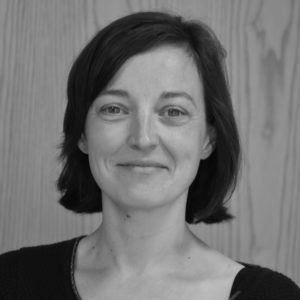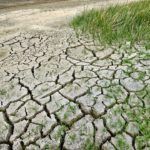
By Gail Wilson, Campaigns Manager, Stop Climate Chaos Scotland
Our planet, which we readily take for granted is like no other that we know of. It’s the only planet that cleverly sustains diverse ecosystems and has the capacity to enable all its inhabitants to flourish. The catch? For our unique and clever planet to continue to do this, we need to be clever enough to look after it.
The Earth’s climate is changing at a pace that is surpassing most scientific projections. Global temperatures have now risen approximately 1°C above pre-industrial levels, with devastating weather events in many parts of the planet. Examples from this year alone include months of low rainfall in California followed by record-high temperatures in July that led to one of the most destructive wildfires to date. Whereas in Pakistan, people faced the worst rains in decades, which caused further death and devastation to a country already ravaged by climate change. Scotland also experienced one of the heaviest recorded snowfalls in winter followed by one of the hottest summers on record.
Today 1 in 6 species is at risk of extinction because of climate change and across the world there are already people being displaced by it, with the poorest people in the poorest countries being hit hardest.
As science on climate change becomes stronger, a new report released earlier this week by the UN’s scientific body, the Intergovernmental Panel on Climate Change (IPCC), shows that unless concerted and urgent efforts are made to reduce greenhouse gas emissions, at the current rate, the average global temperature is on track to increase by 1.5°C by the 2040’s and increase further from there. This will likely breach the Paris Agreement, through which in 2015, all nations committed to pursue efforts to limit the global temperature increase to 1.5°C.
Scientists have demonstrated in their research that to deliver the Paris Agreement, all rich countries like Scotland must halve emissions each decade and achieve net zero greenhouse emissions by 2050 at the latest. Today’s report further spells out the impact of global temperature rising past 1.5°C, where risks posed to people and the planet will increase significantly.
As well as rising sea levels, for some ecosystems, such as the world’s coral reefs, the difference between 1.5°C and 2°C is likely to be critical. An alarming 90% of coral reefs are likely to be severely damaged or destroyed at 1.5°C and as much as 99% are likely to be severely damaged or destroyed with a global temperature increase of 2°C.
To have a fighting chance of curbing drastic climate change the world will now have to work towards a maximum global temperature rise of no more than 1.5°C. This, scientists say, is still possible but only through a united shift from fossil fuels with coordinated efforts to continue to remove carbon from the atmosphere.
Rises in global temperatures will continue to heavily impact people and nature and only an urgent change in tack today can help minimise the damage and the risks forecast. This week’s report is the strongest evidence yet that global emissions levels are pushing us towards a point of no return and will leave nowhere on the planet untouched. It’s a stark warning to anyone willing to take the risk of ignoring scientific advice today.
New Zealand, Norway, Sweden and Iceland have already committed to reaching a net zero greenhouse emissions target by 2050 at the latest. The European Parliament has recommended that the EU also reaches this.
It’s now the Scottish Government’s turn to take responsibility and join with other progressive countries across the world to tackle this most global of issues together. It must listen to the advice laid bare by scientists and act upon it.
Scotland can and must join other nations to commit to net zero greenhouse emissions by 2050. Simply put in the words of my friend’s six-year-old son: “If we don’t look after the planet, the planet will not be able to look after us”.



